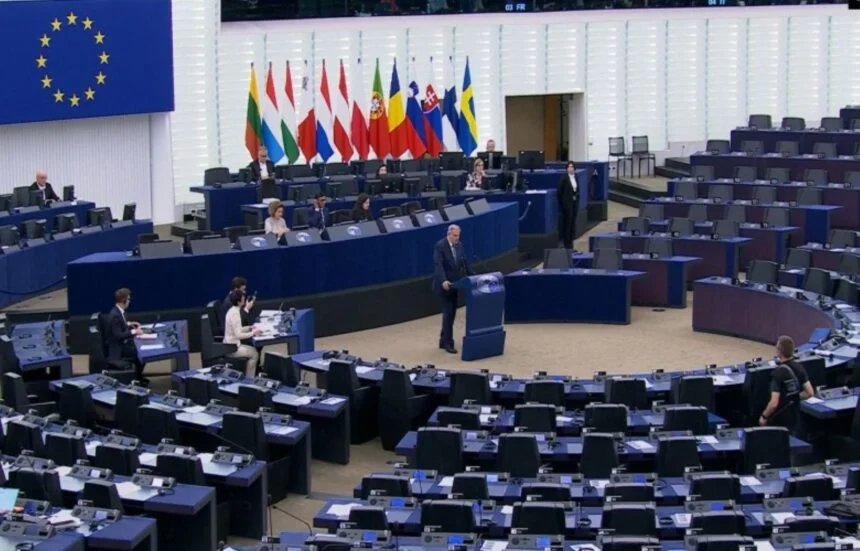The European Parliament has officially adopted a resolution on Kosovo, urging the immediate removal of EU punitive measures and calling for a comprehensive, legally binding agreement with Serbia based on mutual recognition.
The resolution states that Kosovo has fulfilled the criteria required for the lifting of the EU’s punitive measures. It also calls for the full normalization of relations between Prishtina and Belgrade, to be concluded with a lasting peace accord.
The draft’s author, MEP Riho Terras, emphasized the injustice of the sanctions:
“We demand the immediate lifting of the European Union’s punitive measures. These have been unfair and unnecessary from the start. The EU funds many projects supporting Kosovo’s European agenda — this is why we must end the sanctions and let Kosovo move forward with the resources we provide,” Terras said.
The resolution welcomes Kosovo’s application for EU membership, supports its accession to the Council of Europe, and endorses its participation in NATO’s Partnership for Peace. It also urges the five EU member states that have yet to recognize Kosovo’s independence to do so.
Concern is expressed over the security situation in the north of Kosovo, specifically following the Banjska terrorist attack and the incident at the Ibër–Lepenc canal.
The European Parliament also criticized Serbia for its failure to prosecute the perpetrators of the Banjska attack, including Milan Radoičić.
In parallel, the Parliament adopted a separate resolution on Serbia, which harshly criticizes Belgrade’s close ties with Russia and efforts to destabilize the region.
It calls for a review of EU financial assistance to Serbia if it continues its cooperation with Moscow.
“Serbian leaders’ declarations about EU integration sound increasingly unconvincing — especially as they plan visits to Moscow and energy deals with Russia this week,” said Tonino Picula, the European Parliament’s rapporteur for Serbia. “Membership in the EU is a responsibility, not an alibi to escape accountability.”
The resolution also condemns the European Commission’s so-called ‘appeasement policy’ towards Serbia, urging Brussels to adopt clearer language and firmer positions in dealing with Belgrade.







